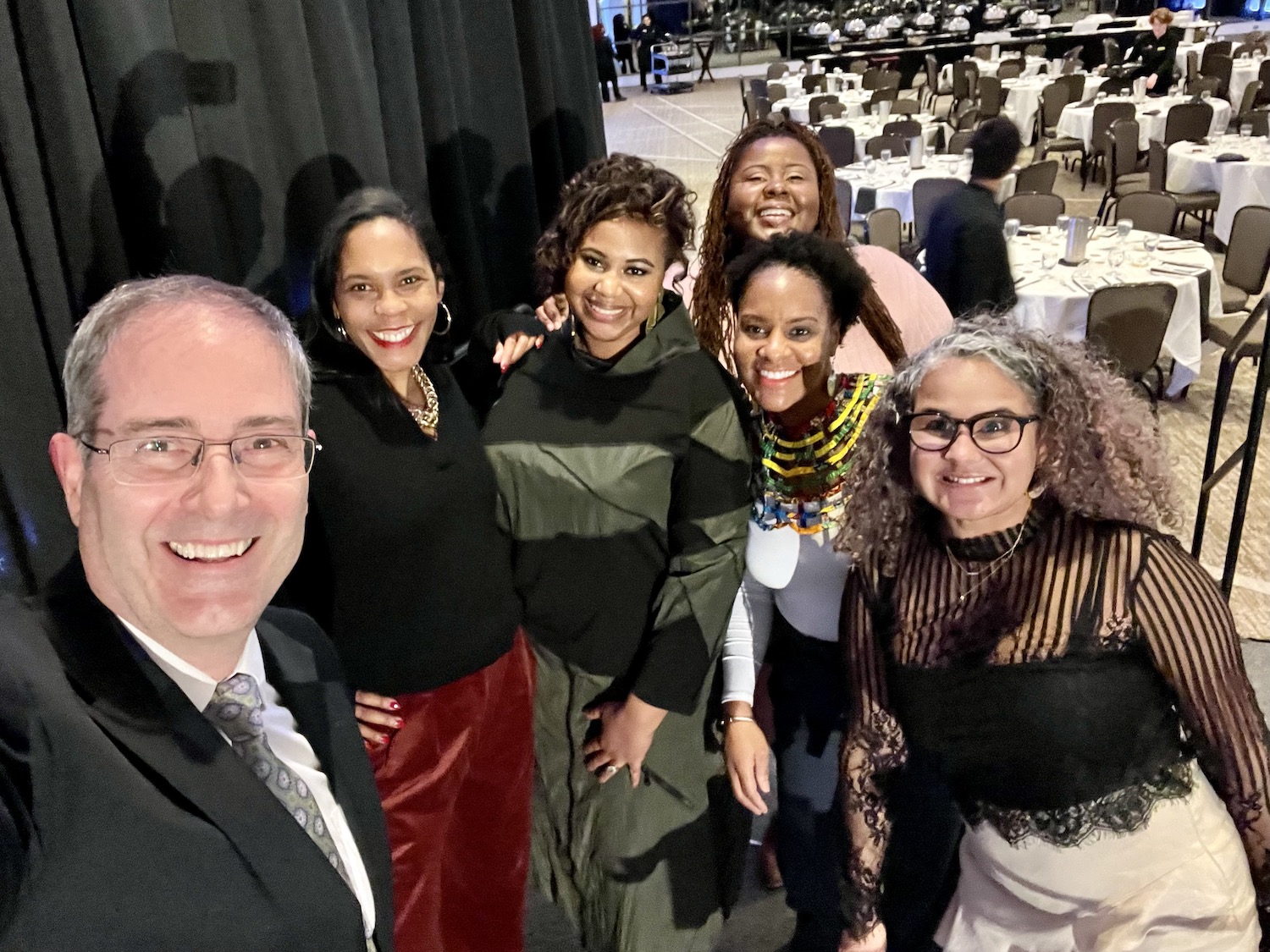Since Thursday, I have been reflecting on the powerful keynote address Professor LeConté Dill gave at the 43rd Annual Martin Luther King, Jr. Community Unity Dinner. Drawing on King’s insistence that “[p]ower, properly understood, is the ability to achieve purpose,”1 Professor Dill offered presentation that embodied the purpose we are trying to achieve in the College of Arts & Letters at Michigan State University.
Although I can’t do justice to the full richness of her address, I thought I would highlight here her practice of gratitude and how it connects to and amplifies the aspirations to which we in the College of Arts & Letters are committed.
Hymn of Thanks
LeConté began with what she called a “hymn of thanks” to all those who contributed to the work she was presenting, from her partner, Umberto Rodriguez, to colleagues who offered feedback on her writing, to those who helped prepare her spectacular appearance at the event. This practice of thanksgiving was an instructive reminder to us all that our purpose is never achieved alone. We are part of a textured network of interdependences that enrich our work and deepen the meaning of our lives.

In the passage with which LeConté began, King goes on to say: “Power at its best is love implementing the demands of justice.”2 To begin with gratitude is to do justice to those who make our success possible; it is a powerful practice of love. LeConté herself characterized her “hymn of thanks” as an ethical citation practice. Perhaps we might begin to think of our habits of citation as ways of putting our power in the service of love for the sake of justice.
Charting Pathways of Intellectual Leadership
It was at once heartening and inspiring to hear LeConté affirm the work we are doing in the College of Arts & Letters to imagine and enact more generous, caring, and joyful ways of academic life. Her own work exemplifies this in how she brings public health scholarship together with arts-based research methods to support wellbeing for Black girls and other youth of color. She writes:
Being situated in the College of Arts & Letters is aiding me to go even further as I integrate my public health background, the tenants of health, and the possibilities of wellness.
LeConté Dill, Faculty Voice: Envisioning Wellness and Justice for All
The work LeConté finds most meaningful is precisely the work we in the College of Arts & Letters hope to advance. To do this, however, we have had to develop a new way of thinking about how we evaluate and reward transdisciplinary, community-accountable scholarship. The Charting Pathways of Intellectual Leadership initiative offers a framework and a process that supports faculty and staff in their efforts to align their core values with the processes of promotion and advancement that shape their academic lives.
The video below describes our approach. Before you watch it, however, I’d like to frame it with a “hymn of thanks” of my own. First, the video was supported by an Imagining America – Leading and Learning Initiative – Stories of Change grant led by Erica Kohl-Arenas, Kal Alston, and Christina Preston. As you will see at the end of the video, I co-created the video with Cara Cilano, Sonja Fritsche, Bill Hart-Davidson, Ryan Kilcoyne, and Ryan Frederick, who did the videography and animation. The wonderful voiceover was performed by Emily Sutton-Smith. While these colleagues helped create the work, my colleagues on the HuMetricsHSS team both provided valuable feedback on the video and inspired the approach, which is designed to align values with the practices that animate a meaningful scholarly life.
From Power to Joy
The power of this approach, we hope, lies in the way it connects power to purpose. But as King notes, “…power without love is reckless and abusive and love without power is sentimental and anemic.”3 So the Charting Pathways of Intellectual Leadership initiative is also about putting love into academic practice. And power with love is joy.
In connecting power to love, justice, and joy, I return to the work Ruth Nicole Brown, Inaugural Chair of the Department of African American and African Studies at MSU, and I are doing in an NEH/SSRC grant we received entitled Pathways of Presencing — Toward Wholeness. That grant allowed us to bring an amazing group of students to the National Gathering of Imagining America in October of 2022 to give a panel presentation on Rethinking the Graduate Experience, Prioritizing Joy.
In that presentation, I returned to a passage from Spinoza’s Ethics that I have carried with me since first encountering it in graduate school. Here is a slide with the passage about joy from our presentation:

In identifying joy with the experience of achieving greater perfection, Spinoza connects joy with what King calls the proper understanding of power, namely, the ability to achieve purpose.
If “power at its best is love implementing the demands of justice” and if our highest purpose as human beings is to do justice to the world we encounter, then, following Spinoza and King, we might say that power operating with love for the sake of justice is joy.
Committing to Joy
Professor Dill’s keynote address on Thursday modeled the practice of joy we hope to cultivate in the College of Arts & Letters. In the Ascension of the Department of African American and African Studies this past November, we experienced it; in the new aspirational statement of the College, we commit to it:
“We will become an irresistible destination for those who imagine and work for a more just and beautiful future.”

